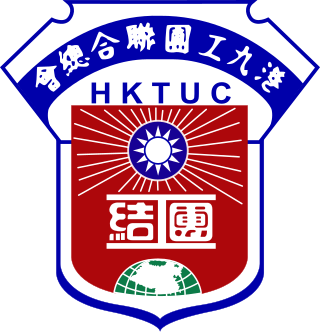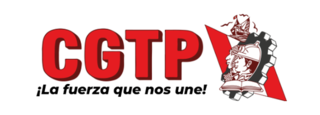Related Research Articles

The International Centre for Trade Union Rights (ICTUR) is "an organizing and campaigning body with the fundamental purpose of defending and improving the rights of trade unions and trade unionists throughout the world." ICTUR has accredited status with both the United Nations and the International Labour Organization.
The Confederation of Independent Trade Unions of Bosnia and Herzegovina is a trade union centre in Bosnia and Herzegovina. It was founded in 1905. ICTUR reports that "the SSSBiH is preoccupied primarily with the consequences of privatization and the high rate of unemployment and problems such as wage arrears."
The Confederation of Trade Unions of the Republika Srpska (SSRS) is a trade union centre in Republika Srpska, in Bosnia and Herzegovina. It was founded in August 1992 and claims a membership of 190,000.

The Botswana Federation of Trade Unions (BFTU) is the national trade union federation for Botswana. Founded in 1977, it represents over 90% of all trade unions in the country, including all major unions. The BFTU is currently undertaking a reorganization which will see its 25 affiliates merged and reduced in numbers to 13.

The Hong Kong and Kowloon Trades Union Council is the third largest trade union federation in Hong Kong, after the Federation of Trade Unions (FTU) and pro-Beijing Federation of Hong Kong and Kowloon Labour Unions (FLU). It is affiliated with the International Trade Union Confederation.

The Central Union of Workers is a Leftist trade union center in Colombia. It was formed in 1986, and is the country's largest union federation, with 546,000 members.
The Nicaraguan Workers' Centre (CTN) is a national trade union center in Nicaragua. It was formed in 1962 as the Nicaraguan Autonomous Trade Union Movement (MOSAN), and changed its name to the CTN in 1972.
Trade unions in Palau. Although the Constitution of Palau recognizes the right to free association, there is no specific mention of trade union rights, including the right of collective bargaining.

The Workers' General Confederation of Peru is a national trade union center in Peru. It was formed in 1929 by José Carlos Mariátegui.
The National Trade Union Confederation is a national trade union center in Romania. It was founded June, 1990 and has a membership of 325,000.

The South African State and Allied Workers' Union (SASAWU) is a trade union representing public sector workers in South Africa.

The Federation of Unions of South Africa (FEDUSA) is the second largest national trade union center in South Africa.

The General Federation of Trade Unions (GFTU) is the sole national trade union center in Syria, it was founded in 1948. By a 1968 decree establishing a single-trade-union system, all trade unions in the country are required to be affiliated to the GFTU, and the GFTU has the power to dissolve the executive committee of any union.
The Chinese Federation of Labor (CFL) is a national trade union center in the Republic of China. It was founded in 1948 in mainland China, and until the government recognition of the Taiwan Confederation of Trade Unions in 2000, was the sole official labor confederation in the RoC.
The Bermuda Public Services Union (BPSU) is a trade union in Bermuda. It was founded in 1952 as the Bermuda Civil Service Association, and changed its name in 1971.
Trade unions in Albania have had an unstable existence in recent decades, mirroring the regional political turbulance in Albania. Since the 1991 defeat of the Albanian Party of Labour (APL), independent trade unions have asserted themselves, with two main national trade union centres; the United Independent Albanian Trade Unions (BSPSh) and the Confederation of Trade Unions (KSSh).
Prior to Algerian independence in 1962, trade unions in Algeria were structured within regional organizations of French trade unions. After independence the General Union of Algerian Workers (UGTA) became the sole trade union center. The UGTA was linked with the Front de Libération nationale; however, in 1989, with constitutional changes and new laws the UGTA was distanced from the FLN and no longer retained the position of sole trade union center. Despite this, the UGTA continues to be, in practice, the only center - with few trade unions outside its affiliation.
Before 1975, while under Portuguese rule, Trade unions in Angola existed primarily as "occupational syndicates" - operating welfare services, but banned from collective bargaining and strike action. Independent African trade unions were illegal, however, some underground or exiled unions existed, and were involved in the struggle for Angolan independence.
Trade unions in Antigua and Barbuda have a significant presence in the workforce, representing approximately 75% of Antigua and Barbuda workers.
The South African Federation of Trade Unions (SAFTU) is a trade union federation in South Africa. It was founded in 2017, and is the second largest of the country’s main trade union confederations, with 21 affiliated trade unions organising 800,000 workers.
References
- ↑ ICTUR; et al., eds. (2005). Trade Unions of the World (6th ed.). London, UK: John Harper Publishing. ISBN 0-9543811-5-7.